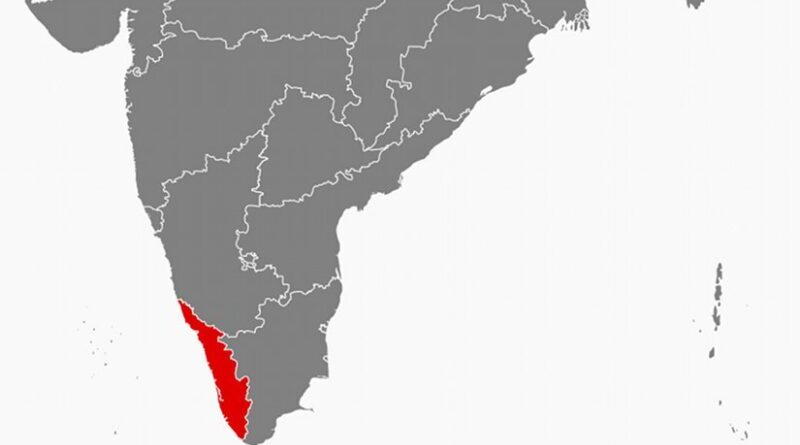India: Kerala Sees Maoists In Flight – Analysis
By SATP
By Indrajit Sharma*
On March 5, 2021, an interstate coordination committee meeting was convened among the security officials of the border Districts of Kerala, Karnataka and Tamil Nadu. During the meeting, it was decided to conduct simultaneous combing operations along the respective State’s border areas, vulnerable to Naxalite [Left Wing Extremism, LWE] activities. Significantly, State Assembly Elections are scheduled to be held in Kerala and Tamil Nadu on April 6, 2021.
On February 27, 2021, Teeka Ram Meena, Chief Electoral Officer of Kerala, stated that, though polling for the State Assembly Elections in Kerala would be held from 7 am to 7 pm on April 6, 2021, voting in the Naxalite-hit areas of the State would begin at 7 am and conclude by 6 pm. He added that the Election Commission had identified 298 polling booths in the State situated in the Naxalite-affected areas in five Districts – Kannur, Kozhikode, Palakkad, Malappuram and Wayanad, adding, “Central forces will be deployed at Naxal-affected booths” as well as the “549 critical location booths and 433 vulnerable polling booths” in the State. There will be 40,771 polling stations in the State.
There are 90 Districts in 11 States which are Naxal-affected, according to information laid before Parliament by the Union Minister of State for Home Affairs G. Kishan Reddy on September 21, 2020. Three Districts of Kerala – Palakkad, Malappuram and Wayanad – fall in this category.
Significantly, these three Districts also fall into what is designated as the Kerala-Karnataka-Tamil Nadu (KKT) tri-junction area where the Naxalites [Left Wing Extremists] have for long been engaged in efforts to set up a base.
While the Election Commission and the Security Forces (SFs), in view of the Union Ministry of Home Affairs’ latest assessment as well as continued efforts of Naxalites to gain ground in the KKT region, are not taking any chances and have rightly decided to take all precautionary measures, Kerala remains free of LWE violence.
According to partial data compiled by the South Asia Terrorism Portal (SATP), the State has not recorded any fatality in the civilian and SF categories in LWE-linked violence since March 6, 2000, when SATP started compiling data on Naxal violence (data till March 21, 2021). The Naxalites have only been able to execute two violent incidents, both explosions, one in 2014 and the second in 2017, during this entire period. No casualty was reported in these two incidents.
On the other hand, SFs have eliminated at least nine Naxalites during this period, including one in 2020. On November 3, 2020, a Communist Party of India-Maoist (CPI-Maoist) cadre was killed in an encounter between Maoists and an SF patrol team in the forests near Meenmutty in Wayanad District.
45 Maoists have been arrested during this period, including three in 2020.
Though no fatality has been reported thus far in 2021, on January 21, 2021, the National Investigation Agency (NIA) arrested a person, identified as Vijith Vijayan (27), from Kalpetta in Wayanad District in connection with the ‘Pantheerankavu Communist Party of India-Maoist (CPI-Maoist) case’ (RC-04/2019/NIA/KOC) dated December 18, 2019. In this case, two persons – Allen Shuhaib and Thwaha Fasal – were arrested by the Kerala Police on November 1, 2019, for allegedly holding a secret Maoist meeting outside a petty shop in Pantheerankavu of Kozhikode District in Kerala. NIA took over the investigation in December 2019 and later filed a charge sheet in the case.
According to a February 21, 2021, report, Police encounters that took place in recent years in Palakkad, Wayanad and Malappuram Districts – considered Maoist strongholds – have resulted in reducing the rebels’ strength. An unnamed senior Police official observed,
…the Maoists are mulling to end their activities in Kerala due to unexpected setbacks faced here and lack of support. The Maoist leaders are planning to retreat from Kerala within five years if the present situation continues.
The official added that a Maoist, T. K. Rajeevan, who was arrested on November 16, 2020, confirmed that the rebels were planning to end the activities in the State.
Over the past years, SFs have done well in tightening their grip over the Maoists’ creeping intrusions into Kerala.
Earlier, as reported on August 22, 2019, after years of adopting a soft approach towards the Maoists, the State Police decided to go on the offensive with their ‘Surrender or Assault’ scheme. Under the scheme, Maoists were given a time frame to surrender, failing which the Police would launch an assault via a series of offensive operations.
Additionally, the Government of Kerala has recently adopted several measures that essentially aim at containing the Maoist attempts to spread their influence in the State. On October 5, 2020, in an effort to boost tourism, the Chief Minister of Kerala, Pinarayi Vijayan announced the construction of a seven kilometers long tunnel connecting Kozhikode and Wayanad Districts, which fall within the KKT tri-junction.
Nevertheless, the Maoists are continuing with their effort to win the support of the people in order to make some inroads, propagating their ideological dogmas through the distribution of pamphlets and posters in several Districts of the State. There were at least five incidents of Maoist poster/pamphlet recoveries in 2020, in addition to four such incidents in 2019.
The Maoist threat in Kerala is at an incipient stage. SF action has blocked any significant consolidation, and such efforts will need to be augmented ahead of the Assembly elections in the State scheduled for April 6, 2021. While the Maoists are clearly at a disadvantage, their venture into the contiguous border regions of the KKT tri-junction are still ongoing, and will need to be countered.
*Indrajit Sharma
Research Associate, Institute for Conflict Management

